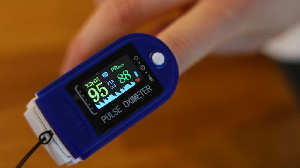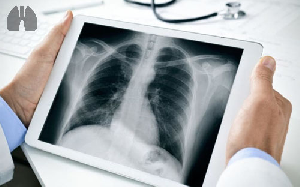Berita Kesehatan
Health status impact of ciprofloxacin dry powder for inhalation in patients with non-cystic fibrosis bronchiectasis

Kamis, 04 Mar 2021 10:18:39
Abstract
Introduction: Ciprofloxacin dry powder for inhalation (ciprofloxacin DPI) is an antibacterial in development for chronic intermittent treatment of non-cystic fibrosis bronchiectasis (NCFB). Objective: To assess influence of baseline severity score (SS) and presence of Pseudomonas aeruginosa (PA) on outcomes in patients with NCFB. Methods: Post-hoc analysis of a phase II randomized trial of ciprofloxacin DPI 32.5 mg bid vs placebo over 28 days (+56 days follow-up [FU]) in patients with NCFB. For baseline SS, 1 point was allocated for: FEV1 <50%; >2 exacerbations in the past year; St George’s Respiratory Questionnaire (SGRQ) activity score ≥55 points; age ≥65 years; BMI <18.5. Results: At Day 28, patients on ciprofloxacin DPI had greater total sputum bacterial load reduction from baseline (–3.62 log10 CFU/g) than those on placebo (–0.27 log10 CFU/g; p<0.001). Mean (±SD) baseline SS was 1.92 (±1.15) and 1.88 (±1.25) in the ciprofloxacin DPI and placebo arms. Overall, 52% of patients were PA-positive. There was no consistent influence of SS or PA on hs-CRP levels or sputum colour, at either baseline or any study timepoint. SS affected frequency of exacerbations in the placebo (p=0.031) but not the ciprofloxacin DPI group; PA did not influence frequency of exacerbations. At Day 8 of treatment and at 2 weeks FU, PA affected bacterial load reduction (ciprofloxacin DPI arm); SS had no effect at any timepoint. Conclusion: Ciprofloxacin DPI had microbiological efficacy independently of SS at baseline. SS influenced frequency of exacerbations in the placebo group. PA presence at baseline had an effect on bacterial load reduction during ciprofloxacin DPI treatment.














